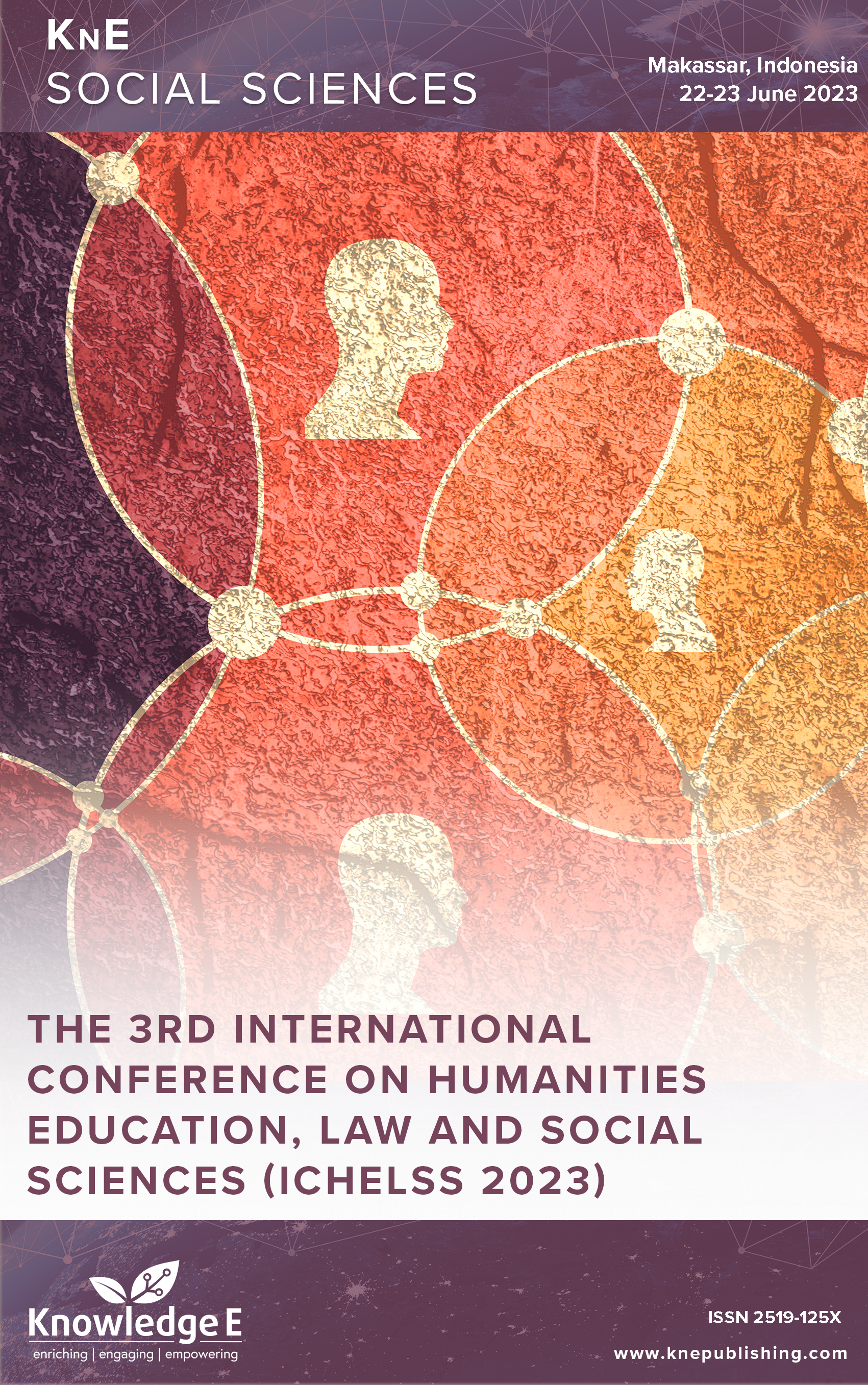Analysis of Critical Thinking of IPS Education Students
DOI:
https://doi.org/10.18502/kss.v9i2.14944Abstract
Critical thinking is the skill to objectively analyze, evaluate, and solve problems using logical and rational thinking. Critical thinking skills are useful in many aspects of life, including making effective decisions and evaluating arguments. Students’ critical thinking skills refer to students’ skills to actively analyze, evaluate, and solve problems rationally. The purpose of this research is to know the analysis of critical thinking skills in IPS education programs. This literature review study used the systematic literature review (SLR) method. The analysis showed that there is variation in the level of critical thinking ability among social studies students. Some students may demonstrate higher abilities in analyzing, evaluating, and relating social studies-related information, while others may still need to improve their critical thinking skills. The need for improvement in the critical thinking skills of social studies education students; and the need for an increase in learning approaches that focus on the development of critical thinking. Teachers can integrate teaching strategies that stimulate analytical thinking.
Keywords: skills analysis, critical thinking, social studies education
References
Susanto H, Irmawati I, Akmal H, Abbas EW. Media Film Dokumenter dan Pengaruhnya terhadap Keterampilan Berpikir Kritis Siswa. Hist J Progr Stud Pendidik Sej. 2021;9(1):65–78. DOI: https://doi.org/10.24127/hj.v9i1.2980
Qomariyah EN. Pengaruh problem based learning (PBL) terhadap Kemampuan Berpikir Kritis IPS. J Pendidik dan Pembelajaran. 2017;23(2):132–41.
Fitriawati N. Penerapan Model Pembelajaran Berbasis Masalah (Problem Based Learning) dalam Meningkatkan Kemampuan Berpikir Kritis Siswa pada Mata Pelajaran IPS Terpadu Kelas VIII di MTSN Selorejo Blitar. Undergraduate Thesis, Universitas Islam Negeri Maulana Malik Ibrahim; 2010.
Zain UN, Affandi LH, Oktaviyanti I. Pengaruh Model Pembelajaran Inkuiri terhadap Kemampuan Berpikir Kritis Siswa Kelas V pada Mata Pelajaran IPS. J Classr Action Res. 2022;4(2):71–4.
Permana EP. Penerapan Metode Pembelajaran Kooperatif Numbered Heads Together (NHT) untuk Meningkatkan Hasil Belajar dan Berpikir Kritis Siswa pada Mata Pelajaran IPS SD. J Pendidik Dasar Nusant. 2016;1(2):49–58. DOI: https://doi.org/10.29407/jpdn.v1i2.210
Anggraeni N, Rustini T, Wahyuningsih Y. Keterampilan Berpikir Kritis Siswa Sekolah Dasar pada Mata Pelajaran IPS di Kelas Tinggi. J Kaji Pendidik dan Has Penelit. 2022;8(1):84–90. DOI: https://doi.org/10.26740/jrpd.v8n1.p84-90
Kurniawati. Analisis Validitas Isi Instrumen Tes Berpikir Kritis IPS Kelas V SD Kota Yogyakarta. Pelita J Penelit dan Karya Ilm. 2021;21(1):130–40. DOI: https://doi.org/10.33592/pelita.v21i1.1396
Nasution EYP, Pebrianti D, Putri R. Analisis Terhadap Disposisi Berpikir Kritis Siswa Jurusan IPS Pada Pembelajaran Matematika. Mathline J Mat dan Pendidik Mat. 2020;5(1):61–76. https://doi.org/10.31943/mathline.v5i1.130. DOI: https://doi.org/10.31943/mathline.v5i1.130
Maksum A, Wayan Widiana I, Marini A. Path analysis of self-regulation, social skills, critical thinking and problem-solving ability on social studies learning outcomes. Int J Instr. 2021;14(3):613–28. DOI: https://doi.org/10.29333/iji.2021.14336a
Rasimin R, Zuhri M, Hamsah M, Nurchamidah N, Rosyad AM. Effectiveness of multimatobe integration in social studies learning to enhance critical thinking skills. J Innov Educ Cult Res. 2022;3(4):707–13. DOI: https://doi.org/10.46843/jiecr.v3i4.336
Mislia TS, Indartono S, Mallisa V. Improving critical thinking among junior high school students through assessment of higher level thinking skills. In: International Conference on Social Science and Character Educations (ICoSSCE 2018) and International Conference on Social Studies, Moral, and Character Education (ICSMC 2018). Yogyakarta: Atlantis Press; 2019. p. 326–33. https://doi.org/10.2991/icossceicsmc- 18.2019.58. DOI: https://doi.org/10.2991/icossce-icsmc-18.2019.58
Nganga L. Preservice teachers’ perceptions and preparedness to teach for global mindedness and social justice using collaboration, critical thinking, creativity and communication (4cs). J Soc Stud Educ Res. 2019;10(4):26–57.
Saldıray A, Meydan A. Inclusive education for refugee children: Preservice social studies teachers and their critical thinking skills. Issues Educ Res. 2023;33(1):327– 51.
Aghababaeian P, Moghaddam SA, Nateghi F, Faghihi A. Investigating changing in social studies textbooks of public review (basic fourth and fifth) based on the emphasis on critical thinking skills facione in the last three decades. Int Educ Stud. 2017;10(3):108–15. DOI: https://doi.org/10.5539/ies.v10n3p108
Oyibe OA, Edinyang SD, Effiong VN. Self-directed learning strategy: A tool for promoting critical thinking and problem solving skills among social studies students. IOSR J VLSI Signal Process
[Internet]. 2015;5(3):52–8. Available from: www.iosrjournals.org
Kozikoğlu İ. Investigating critical thinking in prospective teachers: Metacognitive skills, problem solving skills and academic self-efficacy. J Soc Stud Educ Res. 2019;10(2):111–30.
Meral E, Tas Y. Modelling the relationships among social studies learning environment, self-efficacy, and critical thinking disposition. Egitim Ogr. 2017;7(3):349–66. DOI: https://doi.org/10.14527/pegegog.2017.013
Hartshorne R, Waring SM, Okraski H. Developing well-informed, critically thinking, and active citizens through the connection of modeling & simulation and social studies education. Clear House. Clearing House. 2019;92(1–2):48–52. DOI: https://doi.org/10.1080/00098655.2019.1571988
Bermudez A. Four tools for critical inquiry in history, social studies, and civic education. Rev Estud Soc. 2015;4(52):102–18. DOI: https://doi.org/10.7440/res52.2015.07
Aybek B, Aslan S. An analysis of the units “i’m learning my past” and “the place where we live” in the social studies textbook related to critical thinking standards. Eurasian J Educ Res. 2016;2016(65):35–54. DOI: https://doi.org/10.14689/ejer.2016.65.03

